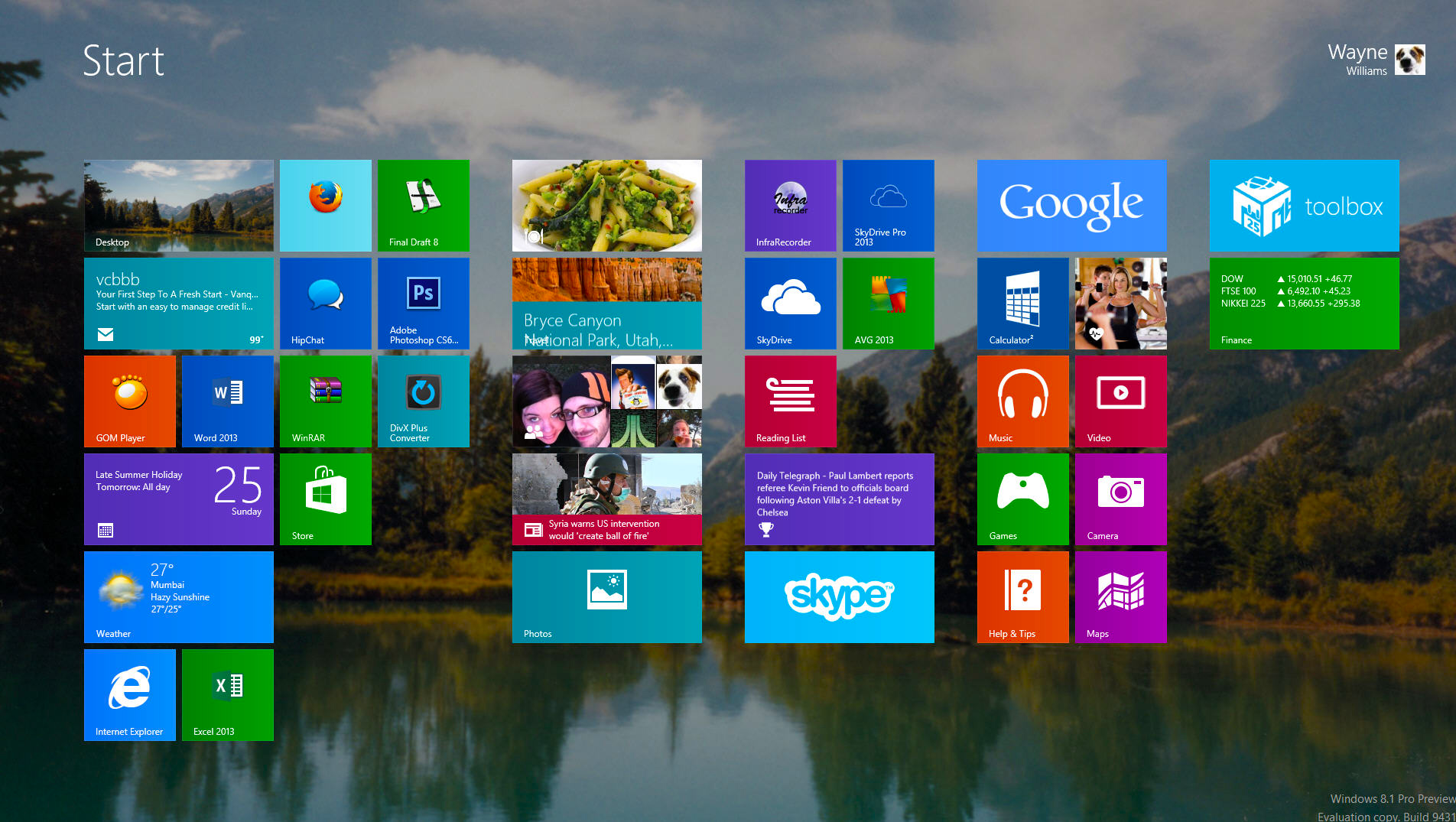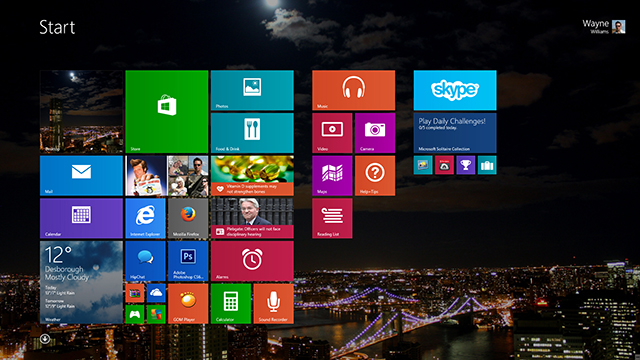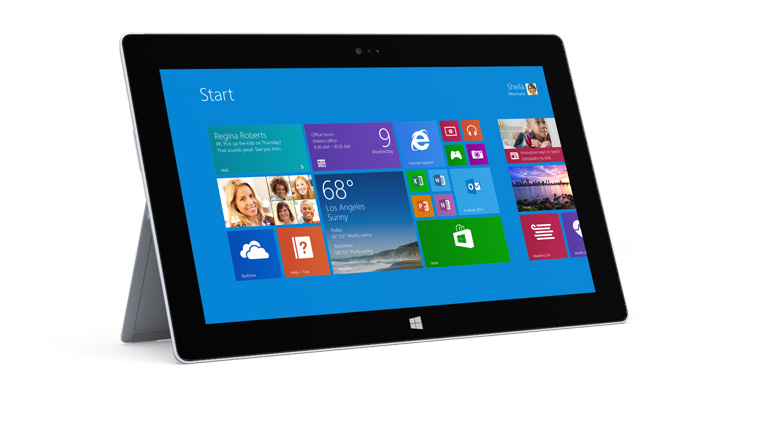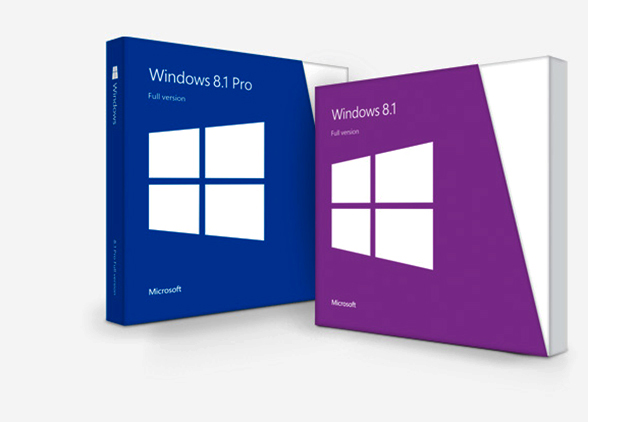
Internet Explorer vastly superior at defeating social engineering attacks
Security research firms frequently test browsers to see how good they are at protecting users from malware and phishing attacks. The results show you how secure (or otherwise) the latest versions are, but don't give you any real indication of how well they might perform in the future.
Identifying trends in performance is important, particularly for companies thinking of switching browsers, so NSS Labs evaluated the security of Internet Explorer, Chrome, Firefox and Safari by aggregating results from phishing and socially engineered malware (SEM) attack tests conducted between 2009 and 2013.

Windows 8.1's Calculator app sums up what's wrong with Microsoft's new OS
Windows 8.1 is great. But at the same time it -- and its predecessor -- is based on a slightly flawed concept. It's built on the idea of a one-size-fits-all operating system, but in order to get it to work across tablets, desktop PCs, laptops and hybrids, Microsoft has had to make various compromises. A bit like trying to make one suit fit four people with different body shapes.
Windows 8.1 (like Windows 8) fits best on tablets, but tweaks had to be made to ensure it runs on smaller screen sizes. Windows 8.1 works well on standard PCs, but you can almost feel Microsoft's disapproval when you're controlling the OS with a mouse and keyboard -- "But that's not how it's meant to be used!" As a desktop user there are various elements of the new OS which annoy me, but none more so than the Calculator app.

Automate login and bypass the lock and Start screens in Windows 8.1
Windows 8.1 is a huge improvement over Windows 8. Once you've spent any time in the preview (or one of the leaked builds) you'll find it impossible to go back to the obviously half-baked original.
But the default setup still has some annoyances that get in the way and prevent you from just booting up your PC and using Windows. For starters there's the lock screen to get through -- a delaying stage which serves little purpose in a home environment. Then you have to enter your password and log to in your Microsoft account, and finally, once you've cleared those steps, there's the Modern UI to go through on your way to the desktop. Fortunately you can configure Windows 8.1 to skip all of that nonsense.

Most people still not doing enough to safeguard their personal data
I know a couple of people who have been victims of identity theft, and while they didn’t lose anything financially, there was a lot of work required afterwards to clear up the mess and put safeguards in place to ensure it didn’t happen again. What was amazing to me was that the thieves were able to do things like open store cards with information that was not only false, but incorrect (an entirely fictitious date of birth, for example).
A new infographic from Experian looks at the dangers of identity theft both on and offline, and provides statistics that show while most of us are aware of the risks, few of us actually do enough to properly safeguard our personal information. The findings probably won’t surprise you.

Microsoft targets musicians with the innovative Surface Music Kit
Microsoft is hoping to appeal to serious musicians and remixers with a new add-on for its tablet range. The Surface Music Kit is a backlit cover (called a Blade) that plugs into the Surface keyboard port and replicates the sort of hardware buttons typically used by a music producer or performer.
When you connect the Music Cover, it will install the companion app automatically, providing you with access to all of the building blocks of a song -- templates, drums, bass, keyboard, vocals, and so on. You can use it to create new music but it’s particularly well suited to remixes and mashups.

Apple inflicts major Surface damage on Microsoft -- probably doesn't even care
Yesterday was unquestionably the day of the tablet. Nokia unveiled the Lumia 2520, its first Windows RT 8.1 slate, Apple announced the iPad Air and iPad mini with Retina display, and Microsoft’s Surface 2 and Surface Pro 2 went on sale.
It was unfortunate timing for Microsoft. On a day when Steve Ballmer and co. would have hoped people would be talking about Surface, they were salivating over Apple instead. The fruit logo company inflicted more damage on Microsoft than just drawing focus for a day however.

Apple announces updated iWork and iLife apps for free -- although there is a catch
Despite being billed in the press as an iPad event, Apple announced much more than just the iPad Air and new iPad mini today. As well as improved hardware it revealed its OS update Mavericks would be free, and the giveaways didn’t stop there.
Its iWork productivity apps -- Pages, Numbers and Keynote -- and its iLife creativity apps -- iPhoto, iMovie and GarageBand -- have been redesigned to take full advantage of OS X Mavericks and iOS 7, updated to 64-bit, integrated with iCloud and made entirely free. They’ll come bundled with new Macs or iOS devices. If you’re an existing user, and running Mavericks or iOS 7, you’ll be able to update to the new versions. Not planning on buying new hardware and not an existing user? You’ll still need to pay to get them, I’m afraid.

Where to watch the live stream for Apple’s iPad event -- and what to expect [updated]
When a big tech company live streams a launch event, we usually embed it here for readers to sit back and enjoy. Apple likes to make things difficult though. At last month’s iPhone event it didn’t bother providing a live stream, and you can only watch today’s iPad event if you’re one of the Apple faithful.
To be fair, the restrictions on today’s live stream should surprise no one. It’s exactly the same deal as the iPad reveal last year -- you need to be watching on Apple TV or using Safari 4 on Mac OS X 10.6 or later, or iOS 4.3 or later.

Install Windows 8.1 on Oracle VirtualBox
Last week my colleague Mihaita Bamburic explained how to install the freshly released Windows 8.1 in VMware Player and Workstation, and I wanted to follow that up by showing how to set up the new OS in my personal favorite virtualization software -- Oracle VirtualBox.
There are many reasons why you may want to try out Windows 8.1 before committing to it as your primary operating system -- if you used Windows 8 and hated it, you may want to see exactly how much better the updated release is. If you’re thinking of upgrading from an old OS but aren’t sure about the Modern UI, this a good way of trying it out first.

Google is broken in IE11 on Windows 8.1 [updated]
Oh dear. If you try and search using Google in Windows 8.1 there’s a very good chance the results page won’t display properly. Whatever you search for will generate a mangled page that works, but makes finding the results you want rather tricky.
This problem doesn’t affect searching using Google in Chrome, or Firefox, it only affects IE11 in both Modern UI and Desktop modes.

Restore Libraries in Windows 8.1
You don’t want to save files locally on your hard drive -- you want to store them in the cloud, right? That’s what Microsoft thinks anyway. For that reason it’s baked SkyDrive into the heart of Windows 8.1 and made it the default save-to location for documents.
Although you can easily save elsewhere, one of the main save options, Libraries, has been removed from File Explorer’s sidebar. Another of those weird decisions that the Redmond, Wash. tech giant likes to make from time to time (like giving us a Start button without a Start menu).

Ever wondered how much time you spend staring at screens?
You’ve probably never given any thought to exactly how much time you spend gazing, gawping, glowering and glaring at screens on a daily basis -- but with TVs, computers, tablets and smartphones being such a major part of our lives, you probably won’t be surprised to hear it’s a lot.
Virtual meetings specialist PGi was curious to find out exactly how much time the average person spends a day looking at various screens and has created an infographic which reveals the shocking (or, depending on your viewpoint, not so shocking) results.

Here's what's new in Windows 8.1
With Windows 8.1 Microsoft has attempted to fix a lot of the things that were wrong with Windows 8, and make the operating system more appealing by throwing a bunch of additional features into the mix. It won’t appeal to everyone, but it is a massive improvement over its predecessor.
If you’re planning on updating your computer to the new OS, or are still on the fence and need a little nudge to join the tiled side, let me take you on a guided tour of what’s new.

Is Microsoft deliberately misleading buyers over Surface 2?
We all know the original Surface RT failed badly, and there are multiple reasons for its lack of success, including overpricing, poor distribution, commercials that revealed nothing about the product, and of course Windows RT -- the operating system that was a total mystery to consumers. No one knew anything about it. It came out of nowhere, hidden in the shadows of Windows 8.
What does RT mean? To anyone? (It’s just another in a long line of ambiguous Windows acronyms, joining the likes of XP, NT and CE). It looks like Windows 8, but it isn’t. It can’t run (most) desktop applications, despite having a desktop, and has other less than obvious limitations too.

What you need to know before upgrading to Windows 8.1
It’s nearly a year since Microsoft released the divisive Windows 8, and this week sees the launch of Windows 8.1 -- an update to the tiled operating system that aims to fix many of the perceived wrongs of the first version, while introducing some very welcome new features.
If you’re a Windows 8 or RT user you’ll be able to download the update for free starting at 4AM PDT (that’s 12pm in the UK) on 17 October. You’ll be able to get it directly through the Windows Store.

